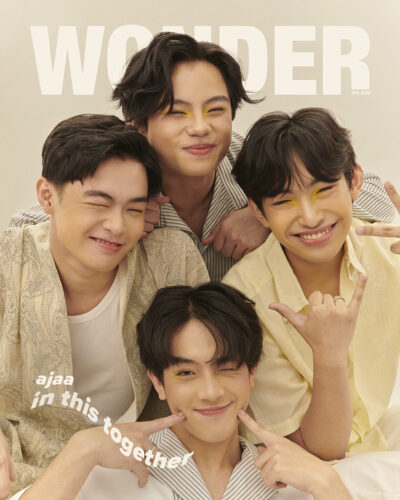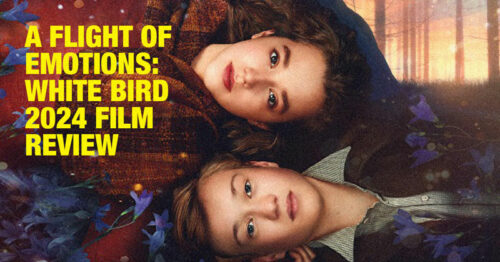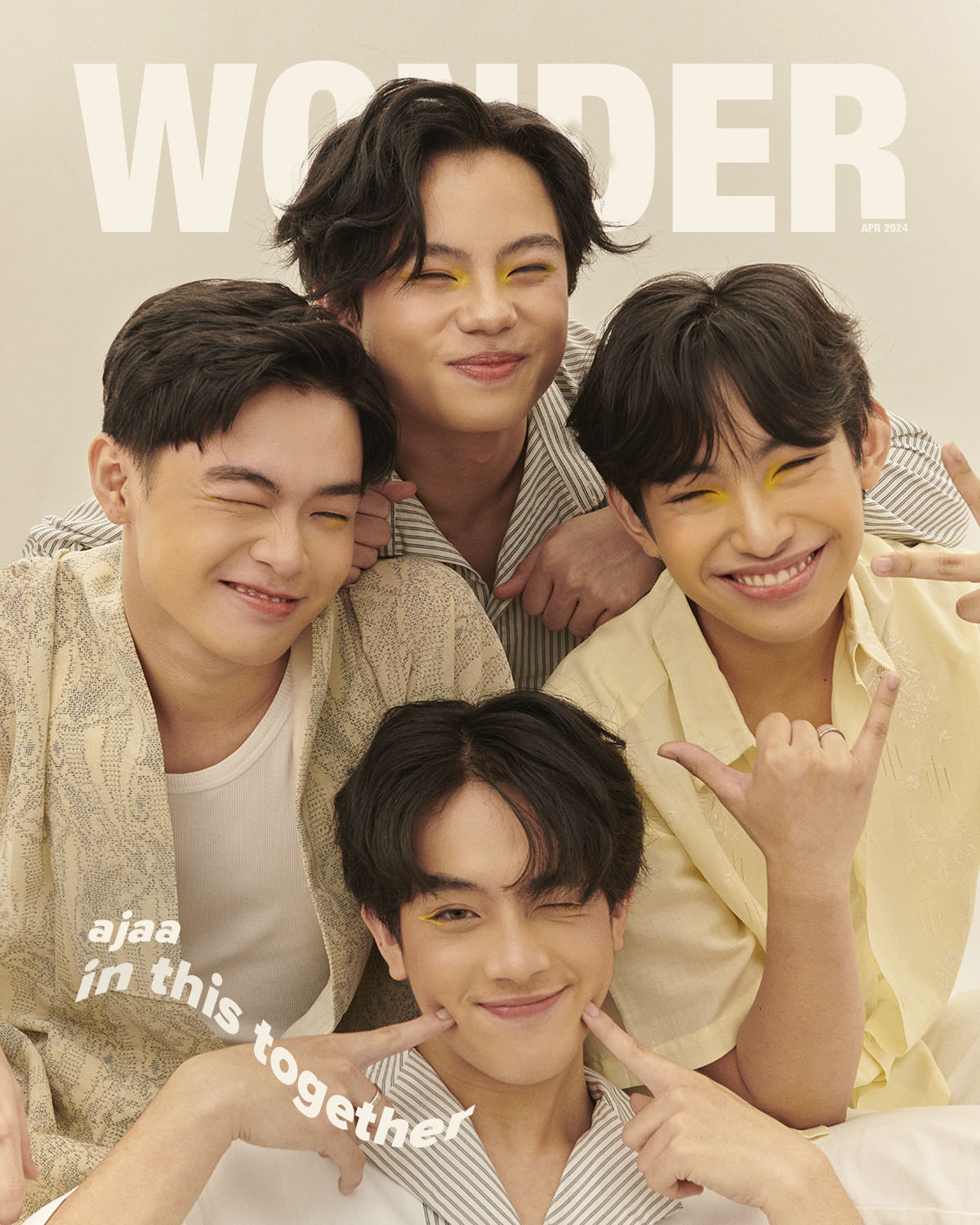Cinemalaya’s “Gitling” asks, “What do our words even mean?”
Gitling, Cinemalaya 2023’s Best Screenplay in the full-length category, is all about language (clearly deserving the award). From simply being a medium in which movies and scripts are written, the very essence of language receives a spotlight as it plays a vital role in the film’s narrative and structure. So, to the everyday person who uses words to make sense of the world (and even reading this piece), it’s a meta-moment to witness the fabric of our thoughts, lives and culture bend before our very eyes.
The film is about a Japanese filmmaker named Makoto (played by Ken Yamamura) who visits Bacolod to showcase his film at a local festival. He meets Jamie (played by Gabby Padilla), who helps create subtitles for his film in the Ilonggo dialect and introduces Makoto to the beautiful city of Bacolod. In this exploration of translation and the power of words, the film asks an essential question: What do our words even mean?
Asking this question was one of the pillars that helped Gabby and Ken piece together the script and characters they each had to play. From collaborating closely with Director Jopy Arnaldo in the script-writing process to discovering what lies beyond the world of words, Gabby and Ken share what filming Gitling was like and everything in between in this exclusive Wonder interview.
RELATED: Cinemalaya Review: “When This Is All Over” Talks Pandemic, Privilege & Priorities
Wonder: How did you prepare for your roles in the film?
Ken: The first process for me was to go through the whole script word by word and see whether it makes sense, and whether the words in the script were words that the character would choose in terms of who they are in the film. I also wanted to focus on whether the Japanese audience would buy the film since I want to ensure I’m representing Japan the best I can.
Gabby: A lot of the energy I spent prepping was towards learning Japanese, but as it was also the first time that my language was used in a film I was in, which is Hiligaynon, I was also involved in translating the Ilonggo script—at least my lines. It also helped that we had a look test the week before flying out [to Bacolod], and our wardrobe [team] did an amazing job with our costumes. That helped me get in Jamie’s shoes, literally.
W: Do you see any similarities between yourself and your characters?
Gabby: This character feels very close to me. Sa language pa lang, it feels like a homecoming, especially as we shot in a place near where I grew up, which was Iloilo. There were also some similarities in my and Jamie’s personalities where Director Jopy helped me articulate some parts of myself that I didn’t know were there. I told Jopey when I read [the script], “Direk, this is so weird. I’m reading the script, and a lot of this is similar to what I was experiencing in my personal life.” So it felt like if I didn’t take this project, I would regret it—it was too much of a coincidence, serendipitous almost!
Ken: Physically, my character goes to Bacolod for the film festival, and I, too, physically am coming from Tokyo to Bacolod. I was away from my family, so physically, I was in that same situation. It was easier, in a way, to see the similarity in what [Makoto] was going through—not entirely, but some of it for sure.
W: Was there any particular scene or line that impacted you the most in the film?
Ken: The very last scene of the film did not have so many lines, but it speaks a lot about our characters in the film. I was quite touched when I read it initially, and I hope people will like it the way we do as well. I wanted to ensure that [that last scene] works, and I think they did a good job—we did a good job!
Gabby: I feel like our film’s strength is its silences. There are a lot of beautiful lines, but I enjoy it when we just sit in silence for a long time—in real life, that’s what it is like, right? But I also love Ken’s line in the film when he said, “I think everyone deserves someone who knows their language,” and whether that’s literally or figuratively, I think that couldn’t be truer.
W: Were there any memorable interactions with the crew or other cast members during the production that helped shape your performance?
Gabby: It was just the spirit of how collaborative we were. It’s the first word I use when describing Director Jopey. He values his work but isn’t so protective of it that he’s closed to anyone else’s input. He values our opinions and understands that it takes a whole team to make the film happen, so he gave us a seat at that table.
Ken: I always say this on set, but I was heading towards the end [of my stay] each day. That was one less day of staying in the Philippines. A day went by, and I was closer to returning home, which made me so sad! Getting to know everyone was so lovely, but we were heading to a certain ending, which also influenced my performance—my character was also heading home.
W: The film addresses the power of language and its limitations in expressing emotions and thoughts. Did this aspect of the story lead to any valuable personal reflections for you?
Gabby: I always think it’s interesting that we’re people with several languages in this one place that we call home, and the film just reaffirms my love for that. I always say that this film is a love letter to Bacolod and its food, but it’s also a love letter to its language and culture. We speak multiple languages every day, especially in Manila, with all these people coming together, and I think that’s what the film highlights well.
Ken: While I was in Manila in Cinemalaya, it was interesting to see how the audience reacted to the use of languages because I’m just a foreigner speaking a foreign language. Still, at the same time, the audience embraced it. So it didn’t matter what language you spoke or where you were from. They were just appreciative of the film. And in the end, language, in particular, didn’t quite matter. Although we used many languages, it was reassuring for us that whatever we spoke, in the end, we didn’t need words.
W: How do you see this film representing your respective cultures, and what will it bring to the global audience?
Gabby: I love that it’s centered on food. I’m glad we got to showcase that, especially because it’s where I come from, and that’s our love language: feeding our guests (that’s what we did with Ken)! Everyone knows there’s good food in the Western Visayas region, so to take it on the global scale hopefully means that they see that there’s more to just adobo and sinigang. There are so many other dishes that we have to offer.
Ken: Food is something understood universally. So, for global audiences, I think that’s something that audiences can instantly get because my reaction on the screen is so real. I ensured that my real bite on screen was my first bite of that food. However the audience takes my reaction is up to them, but food is a universal language, more common than English. Also, what both characters went through and their shared history [are] universal, not only for Filipinos or Japanese; it’s relatable to anyone in the world.
In a world filled with noise, Gitling reminds us that sometimes, silence can speak a thousand words without having to utter a single syllable.
Catch “Gitling” in its regional screenings in Bacolod and Iloilo coming soon!
Words Vanessa Tiong
Art Matthew Ian Fetalver


















